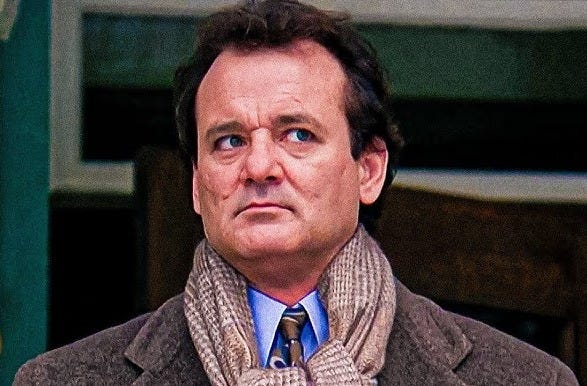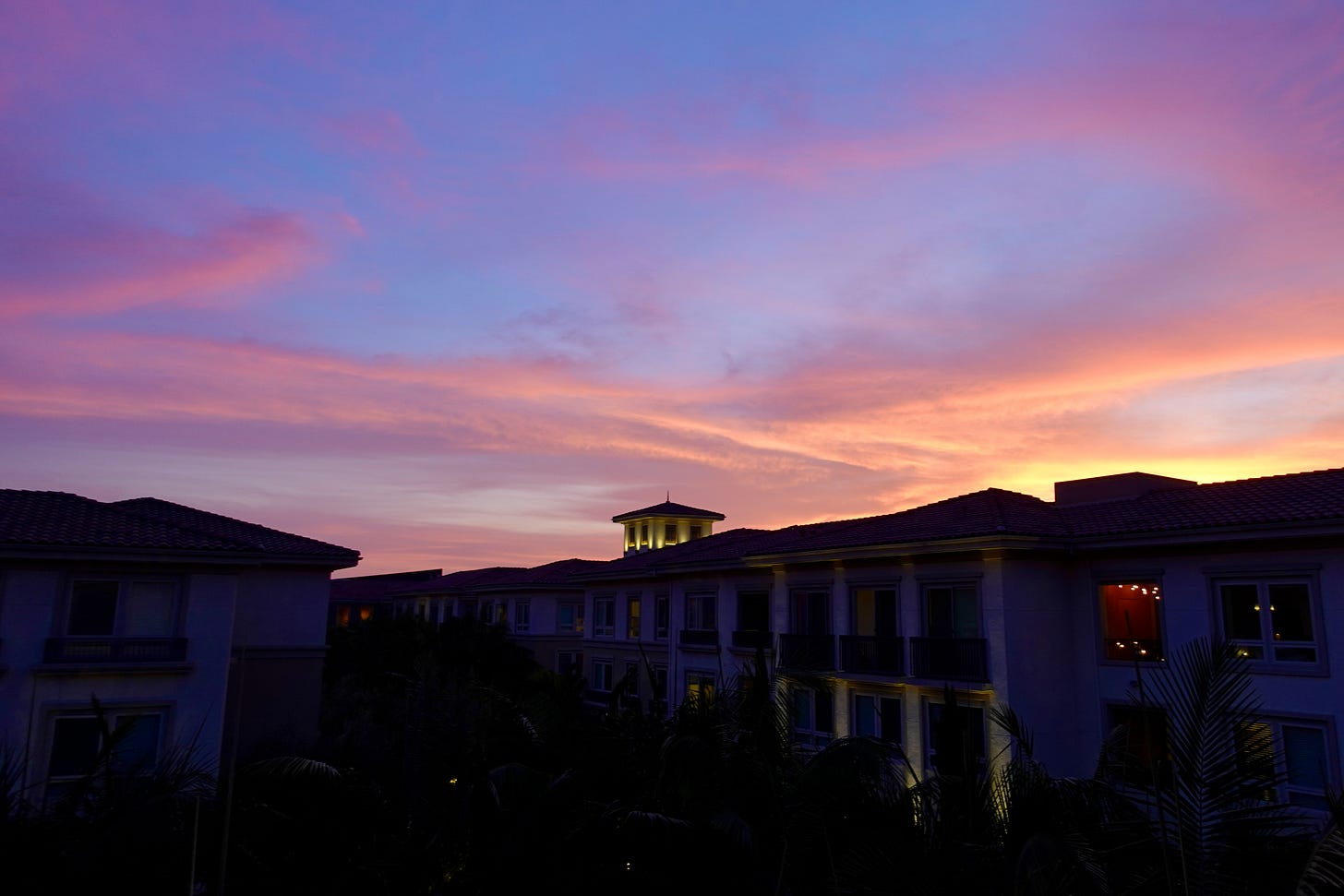Mac Miller: The Hollow Promise of Success
On wealth, work, and why comfort without connection leaves us empty
Welcome to Unknown Arts — I’m Patrick, your field guide to creativity in the age of AI. Join thousands of artist builders navigating what’s next.
A “dream job” is meaningless if you feel like a ghost inside it.
In 2021, I knew this, but didn’t know how to say it.
I had all the trappings of modern success: a high-paying tech job, remote work freedom, and a luxury apartment in LA. But none of it felt meaningful.
My days blurred. Comfortable, but numb.
One day, while getting high to take the edge off a lonely stretch of pandemic isolation, a lyric from Mac Miller’s song Small Worlds stopped me cold:
You never told me being rich was so lonely
Nobody know me, oh well
Hard to complain from this five-star hotel
Those lines named the feeling I was numbing and led me through Mac’s tragic story, my own confusing circumstance, and a question more of us in my generation are starting to face:
What do we do when the life we worked for leaves us feeling hollow?
Mac’s story
On September 7, 2018, Mac Miller was found dead in his home in the Los Angeles hills. He was 26 years old.
A gifted musician. Beloved by fans. Acclaimed by critics. By all external measures, Mac had “made it”. Rich enough to live in near-total comfort. Famous enough to be adored anywhere he went.
And yet, he seemed profoundly sad and alone.
In the years leading up to his death, Mac’s music shifted. The bravado and youthful exuberance of early hits like The Spins gave way to something more introspective. His later work sounded like someone searching for peace in the quiet aftermath of success. Still young, still brilliant, but humbled by the weight of it. Living in a dream realized, yet still looking for the meaning that never materialized.
From the outside, it’s easy to dismiss: what’s there to complain about when you’ve won the game? But that’s exactly what makes it so isolating. When the conditions of your life look perfect on paper, it becomes harder to admit that something essential is missing.
I’d heard Small Worlds many times before, but at the height of the pandemic, with my own life hollowed out in a similar way, the dissonance finally landed.

My connection to the feeling
I woke up one morning and realized I was living in a comfortable but sterile loop.
Wake up, make coffee, sit at desk, open laptop, and wonder—what’s the point of all this?
The startup I worked for had been acquired, and I landed in the kind of position I used to dream about. Cash in the bank. Steady paycheck. Light workload. Fully remote. I was earning more than ever, but nothing I spent money on seemed to matter. Each purchase brought only marginal improvement to an already comfortable life.
Meanwhile, the community I had built in LA quietly dissolved under pandemic restrictions. Social clubs went dormant. Friends moved away. Dating reduced to an awkward string of video calls and outdoor meetups.
After a decade of building a career to support a good life, was this really it?
A Groundhog Day of semi-luxury alone?
Another of Mac’s lyrics lingered in my head: “Do you want it all if it’s all mediocre?”
My work began to feel like a simulation—just a game to pass the time, nothing really meaningful. I started to wonder why I kept showing up at all and where the meaning I’d expected to find in this achievement had gone.
Because my life looked great on paper, I told myself I had no right to complain. My loneliness and crisis of meaning felt like a small price to pay compared to what so many others were facing. But that’s the trap: when your suffering feels illegitimate, you keep quiet. And that silence only deepens the pain.
My life had become remote in every sense of the word. I was an avatar on Slack. A square on a Zoom call. A mechanical turk with a W-2.
I wasn’t living—just clicking my way forward, one day at a time.
But gradually, I realized it wasn’t just me. Friends and coworkers described the same flatness. Lives that looked enviable on paper but felt strangely hollow.
The bigger picture
In my conversations, the same pattern kept surfacing: lives rich in comfort yet thin in meaning. We had sought-after jobs, flexible schedules, and comfortable homes, yet still felt ourselves quietly unraveling.
It wasn’t burnout in the traditional sense. More like an ambient numbness. A low-grade hum of disconnection that never quite resolved.
Tech jobs gave us disposable income and remote work gave us freedom, but they also stripped away the small touchstones that gave shape to our days. We lost the healthy friction that provides traction on the road to a meaningful life: shared meals, chance encounters, the rhythm of little in-person rituals. Without it, life became flatter. More efficient, sure, but also more abstract.
The digital tools that made this possible blurred the boundary between work and self. We became profiles instead of people, async components plugging in and out of a perpetual motion machine. Every message another task on a todo list. Every interaction a transaction.
If we weren’t careful, the very conditions we once aspired to turned out to erode the elements of daily life that made it rewarding.

Ways forward
There isn’t a single fix for this erosion of meaning.
It’s not a problem you can optimize away.
What I’ve been learning instead is that meaning comes from presence. From contact. From commitments that don’t scale.
The old definition of success I carried was all about independence: make enough money, own your time, escape the need for others. But after achieving that version of success, I’ve found the story is empty if you’re the only one in it.
Now I’m more interested in interdependence—community, family, the kind of bonds you can’t outsource or automate.
The shift shows up in small ways: saying yes to things that feel “inefficient,” like crossing town just to see a friend; or showing up at a local event, not because it’s the best option, but because it’s part of the fabric of your community. None of it is glamorous or optimal. But it’s real. And real is what I was missing.
Mac hints at a similar prescription later in Small Worlds:
I'm always in a rush
I've been thinking too much
Keep it on the hush, no one need to know, just us
That's really all it takes
We don't need nothing but today
Maybe that Zen disguised as hip-hop is the closest thing to a cure—slowing down, not overthinking, and sharing the time right in front of us.
It’s not a sure thing, but it’s something. A way to let the friction of real life give you some traction again. A reminder to shrink your digital sprawl back into small worlds worth living in.
Until next time,
Find this valuable? Share it on your social media and tag me.
Not subscribed yet? Get my essays directly — 7,500+ already do.






